West Virginia
Settlement reached on gender markers, names on birth certificates
ACLU settles lawsuit after West Virginia officials reveal new process for amending names & gender markers on birth certificates
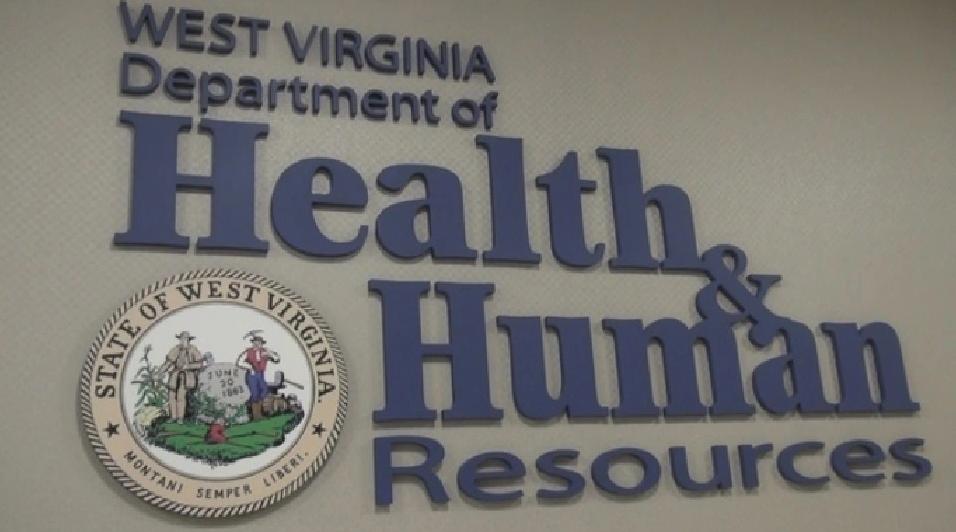
CHARLESTON, W.Va. – The West Virginia Department of Health and Human Resources’ Vital Registration Office has introduced more accessible and safer policies for transgender people seeking to amend their birth certificates.
This action implemented as a result of a settlement in a lawsuit brought by ACLU, ACLU of West Virginia, and the Harvard Law School LGBTQ+ Advocacy Clinic.
“This is a major victory for the thousands of transgender West Virginians who will now be able to obtain accurate birth certificates to help them navigate their lives more safely,” said Joseph Cohen, executive director of the ACLU of West Virginia. “But we know our work is not yet finished. Nonbinary West Virginians are still unable to obtain a birth certificate that accurately reflects their gender. Since April of this year, U.S. citizens have been able to select an X gender marker on passport applications. We will continue to work with our partners to update West Virginia’s policies so that all West Virginians can have the accurate identity documents they need.”
Access to accurate identity documents remains a critical issue for all people but especially transgender people. For years, the West Virginia Vital Registration Office required trans applicants seeking to amend the gender marker on their West Virginia birth certificate to produce a circuit court order directing the amendment.
In 2020, the West Virginia Supreme Court of Appeals stripped West Virginia circuit courts of the authority to order such amendments. Despite this ruling, the West Virginia Vital Registration office continued its policy of requiring transr applicants to produce a court order to amend the gender marker on their birth certificate, effectively barring gender marker amendments for trans people.
Further, trans applicants who previously successfully amended their gender marker and/or name on their birth certificate, still faced having to carry a birth certificate that left their deadname and incorrect gender marker clearly legible on the face of the newly amended birth certificate, due to the Vital Registration Office’s amendment method.
In August 2021, the ACLU, the ACLU of West Virginia, and the Harvard Law School LGBTQ+ Advocacy Clinic sued over both policies. The lawsuit demanded that the agency develop policies by which trans people with West Virginia birth certificates could both obtain a gender marker amendment and do so in a method that does not disclose their transgender status on the face of the amended birth certificate.
This past Spring, West Virginia’s Department of Health and Human Resources announced new birth certificate amendment policies. First, applicants, including trans applicants, who are seeking to amend the gender marker on their West Virginia birth certificate, no longer need a court order. They need only provide a simple provider attestation form available from the West Virginia Vital Registration Office’s website.
Further, the new policies amend birth certificates in a manner that reduces the risk of outing trans individuals who have had name and/or gender marker amendments by removing the previous information from the face of the newly amended birth certificate. These important policy implementations make birth certificate amendments more accessible and safer for trans applicants.
“This is an incredible policy change not only for our clients but all transgender people with West Virginia birth certificates who require amendments,” said Taylor Brown, lead counsel and Staff Attorney with the ACLU LGBTQ & HIV Project. “West Virginia’s new policies restore a greater degree of autonomy and self-determination for transgender people in West Virginia. In today’s climate, it is more important than ever for the government to leave personal decisions of these kinds where they belong, between an individual and their provider. Not a court, legislators, or administrative bodies. This is an important win for those reasons alone.”
“This is a tremendous victory for the transgender people of West Virginia, who will now be able to update this crucial identity document without having to pursue an unnecessary, long and expensive process to obtain a court order,” said Malita Picasso, Staff Attorney with the ACLU LGBTQ & HIV Project. “Now, transgender West Virginians will not be forced to disclose their transgender status every time they present a birth certificate with a gender marker that does not match their gender identity.”
“Birth certificates and other identity documents are essential to navigate daily life,” said Alexander Chen, Founding Director of the Harvard Law School LGBTQ+ Advocacy Clinic. “Like driver’s licenses, birth certificates are commonly used to verify a person’s identity. That transgender West Virginians can now obtain birth certificates matching their true selves is an important part of making our country more reflective of our core constitutional values, including recognizing the fundamental dignity and right to privacy of every person.”
West Virginia
West Virginia bakery’s ‘sick freak’ cookies answer to LGBTQ+ hate
The bakery printed out on edible paper some samples of hate-filled vitriol directed at the shoppe for being an LGBTQ+ ally

CHARLESTON, W.Va. – A cupcake shop and bakery in West Virginia’s capital city decided to push back at anti-LGBTQ+ hate speech in a novel and delicious retort at the online trolls. Rock City Cake Company released a special in time for Pride Month 2024, the “Sick Freak Cookie Box.”
Located in the heart of Charleston’s downtown area at 205 Capitol Street, the bakery printed out on edible paper and baked onto the cookies, some samples of hate-filled vitriol directed at the shoppe for being an LGBTQ+ ally and at the Mountaineer State’s LGBTQ+ community in general.
On the Rock City Cake Company‘s Facebook page the bakery wrote:
TRIGGER WARNING: Included in this box are real life hate/ homophobic comments posted on social media in our LOCAL community for nothing more than sharing something pride related.
We as a company, along with many others have received hateful messages/comments, and well… in rock city fashion, we decided to showcase them on a cookie for a good cause.
If nothing else, to support our local non profits, and encourage young or closeted LGBTQ+ members that the hate they see spewed online is nothing more than a word on a cookie, and we as a community won’t stand for it here.
For every sick freak box that’s sold, a portion of the proceeds will be donated to a couple LOCAL non profits (which we will keep anonymous for now, unless we receive their blessing to post publicly, to avoid more hate spewed towards their mission)
The bakery also quoted the Rev. Dr. Martin Luther King Jr.:
“Darkness cannot drive out darkness; only light can do that. Hate cannot drive out hate; only love can do that.”
To order your cookie box head over to-www.rockcitycakeco.com/sickfreaks with pick up Friday, June 7th from 8 AM-6 PM (Eastern)
West Virginia
W.Va. AG files brief backing anti-trans kids protesting trans athlete
Attorney General Patrick Morrisey filed a brief in support of the female middle school student-athletes protested a trans athlete competing
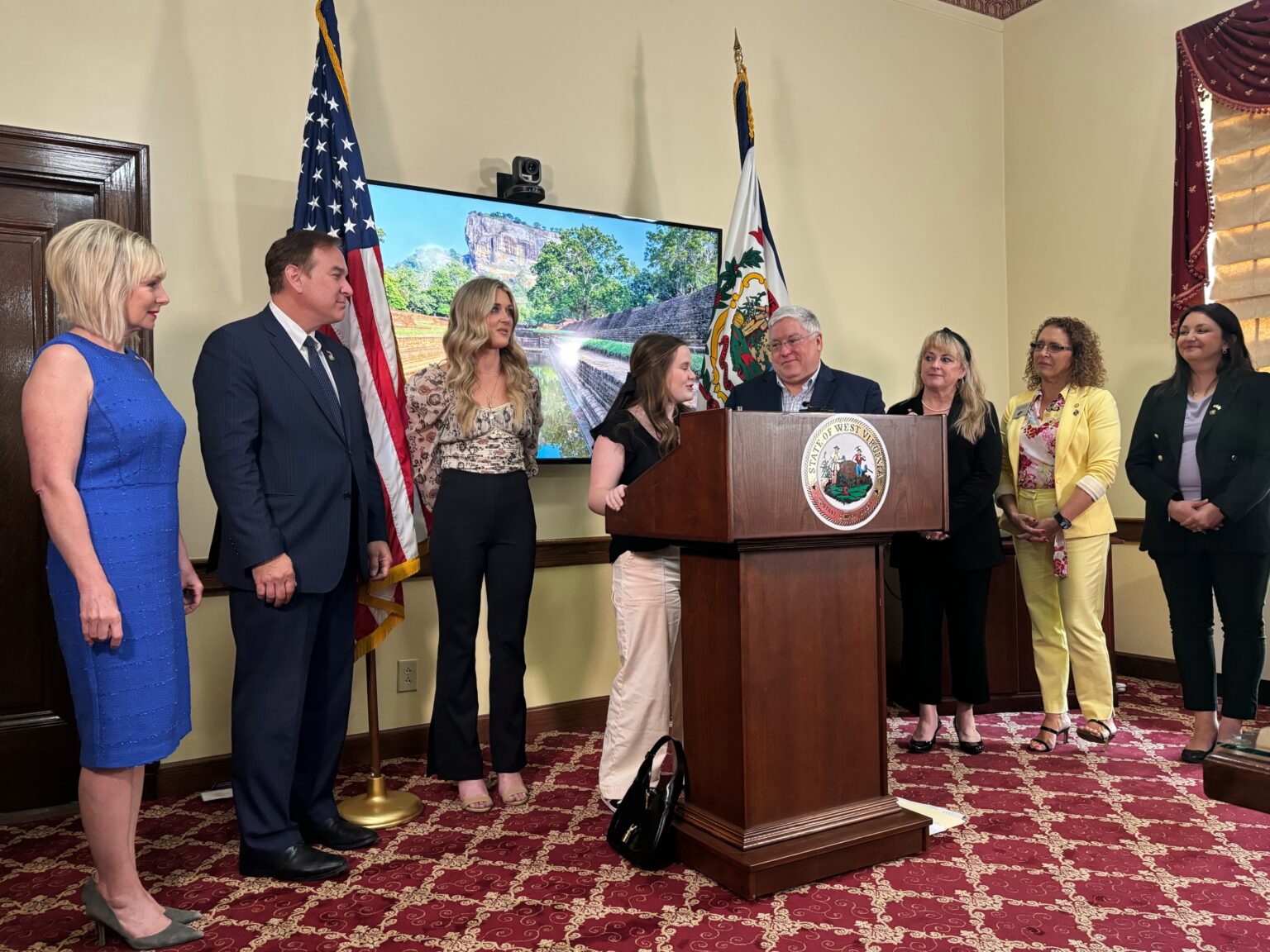
By Amelia Ferrell Knisely | CHARLESTON, W.Va. – West Virginia Attorney General Patrick Morrisey filed a brief in support of the female middle school student-athletes who publicly protested a transgender athlete competing in their track and field competition.
The transgender athlete has been permitted to compete due to a recent federal appeals court ruling.
Five students who forfeited their shot-put competition April 18 in protest have now been barred from competing in that event at their next track and field meet, according to a new release from the AG’s office.
Four of the five students, through their parents, filed suit.
“Their actions at the earlier track meet were not disruptive or aggrandizing. They were the quiet demonstration of the student-athletes’ evident unhappiness with the competitive consequences of a federal appellate court’s decision,” Morrisey, a Republican, wrote in the amicus brief filed April 26.
The girls’ competition forfeiture followed a federal appeals court ruling in favor of West Virginia teen Becky Pepper-Jackson, a trans girl who uses puberty blocking medication. The girl sued the state over its law barring trans athletes from competing on girls’ and women’s sports teams in public schools and colleges.
The law doesn’t ban trans males from competing on boys’ or mens’ teams.
The federal appeals court ruling only blocked the state’s transgender sports ban in Pepper-Jackson’s case; it did not overturn the state law in its entirety.
The AG announced last week that he will ask the U.S. Supreme Court to weigh in on if the state can enforce its transgender athlete ban in Pepper-Jackson’s case.
Morrisey is currently running for governor in a tight Republican primary race ahead of the May election.
******************************************************************************************

Amelia is an investigative reporter for West Virginia Watch. Her coverage regularly focuses on poverty, child welfare, social services and government.
******************************************************************************************
The preceding article was previously published by West Virginia Watch and is republished with permission.
Nonprofit, nonpartisan, independent journalism not hidden behind a paywall. Mountaineers are always free, and so is West Virginia Watch.
West Virginia Watch is part of States Newsroom, the nation’s largest state-focused nonprofit news organization.
West Virginia
Over 20 anti-LGBTQ+ bills die in West Virginia
West Virginia saw several dozen of anti-trans bills proposed in 2024. Now, virtually all of those bills are dead
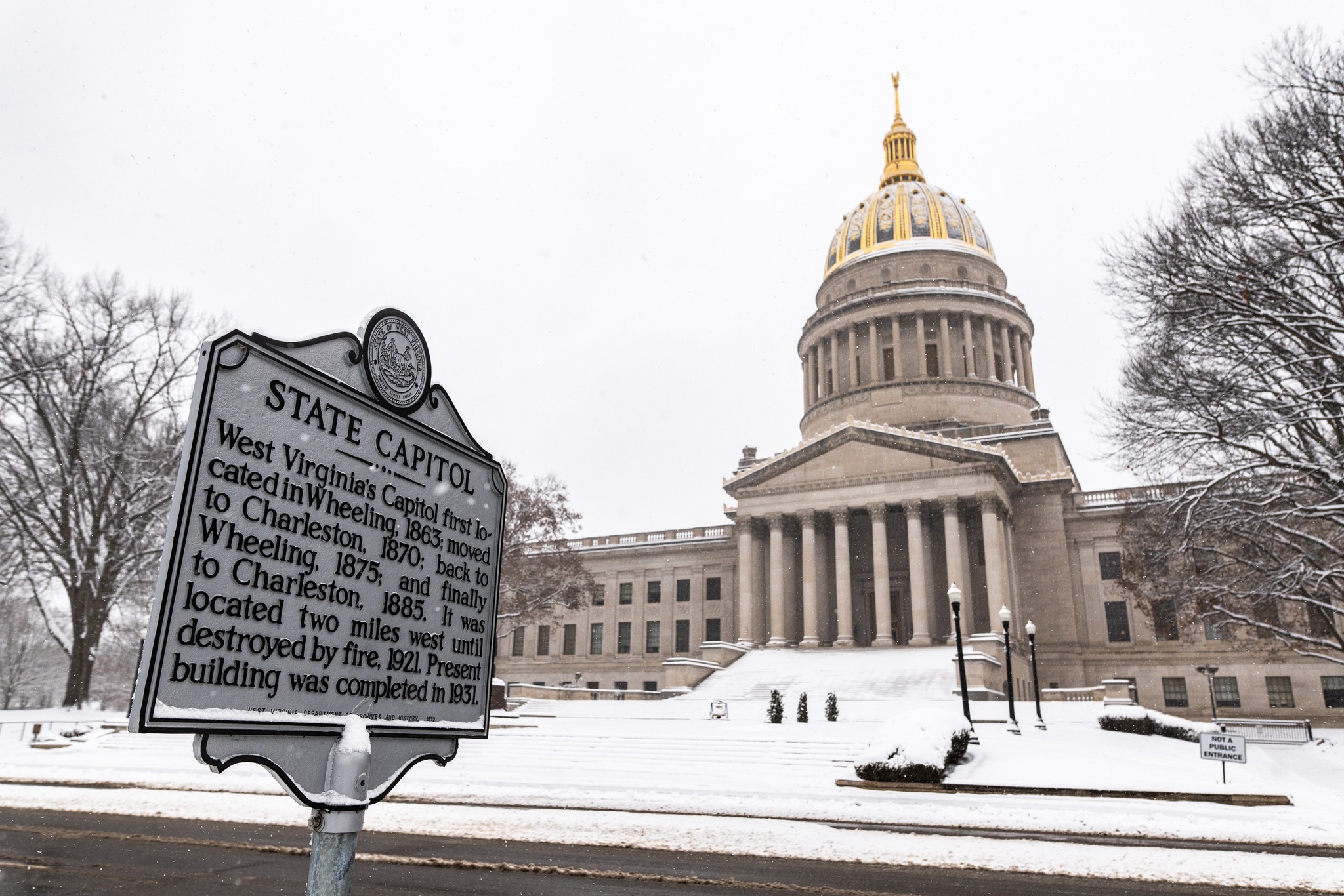
By Erin Reed | CHARLESTON, W.Va. – At midnight on Saturday, more than 20 anti-LGBTQ+ bills died in West Virginia after the legislature adjourned sine die.
Bills that did not pass included the misleadingly named “Women’s Bill of Rights,” which would have ended legal recognition for transgender people in the state, as well as a bill that would have prohibited gender-affirming care for all transgender youth.
West Virginia is the second state in a week hinting that anti-transgender legislative attacks are encountering resistance. Last week, Florida’s legislature also adjourned, effectively killing dozens of anti-transgender bills.
One bill that failed to pass as the West Virginia legislature adjourned was House Bill 5243, also known as the misleadingly-named “Women’s Bill of Rights” by its proponents. The bill primarily aimed to exclude transgender individuals from all legal gender protections in the state.
Riley Gaines, who heavily promoted the bill, joined Governor Jim Justice at a press conference where it was announced as a major policy priority. The proposed legislation would have led to bathroom restrictions, prohibitions on driver’s license and ID changes, and the elimination of legal recognition for transgender people’s gender identities.
Despite frantic, last-minute efforts by some Republicans to pass it, Democratic lawmakers countered by proposing dozens of amendments for debate. As a result, Republicans placed it at the bottom of the calendar.
“HB 5243 offered no real tangible protections for cisgender women, all while punching down on another marginalized community, and sought to erase protections for transgender West Virginians,” says Ash Orr, a trans organizer in West Virginia, “Essentially, it amounted to yet another culture war bill designed to divert attention from genuine issues affecting all residents of West Virginia.”
Another bill that did not pass in West Virginia was House Bill 5297, which sought to entirely prohibit gender-affirming care for all transgender youth. The state had previously enacted a ban on gender-affirming care, but it included an exception for transgender youth experiencing “severe dysphoria.”
HB 5297 aimed to eliminate that exception. More than 400 health care providers signed a letter opposing the bill, describing gender-affirming care as lifesaving and urging the legislature to reject it. The bill failed to pass before the legislature adjourned, meaning that at least some transgender youth in the state will continue to be able to receive care, making it one of the few red states where this is still the case.
The state is the latest in a series of developments suggesting that the anti-transgender panic gripping the GOP may be diminishing in the lead-up to the 2024 elections. Florida also recently adjourned without passing numerous anti-transgender and anti-LGBTQ+ bills.
Recent elections have raised questions about the effectiveness of anti-transgender policies in driving voter turnout. In 2023, more than 70% of Moms for Liberty candidates were defeated. The Virginia legislature shifted to Democratic control, despite Governor Youngkin’s efforts to campaign for Republicans by emphasizing anti-transgender politics as a policy priority. Governor Andy Beshear was reelected in Kentucky despite substantial ad expenditures attacking him for vetoing anti-transgender legislation.
When asked about the failure of these to pass, Orr stated, “The truth is, transgender people of all ages are living happy, complete, and beautiful lives – this contradicts the false narrative created around our community by anti-transgender politicians.”
The only bill that did pass in the state was a bill that would stop non-binary gender markers on birth certificates, though it is unclear what effect the legislation would have given that the state did not have a history of issuing such birth certificates.
Although these bills are failing to pass in states that have historically targeted transgender individuals, it remains unclear whether their failure signifies a genuine shift away from targeting LGBTQ+ people or merely a pause in anticipation of the 2024 election outcomes.
The threat remains significant in many areas, with a few extreme bills being enacted this year, including a gender-affirming care ban in Wyoming and an adult bathroom ban in Utah. Additionally, some new states have witnessed the successful advancement of anti-trans legislation, such as a “Parents Rights in Education” bill in Washington, which could lead to forced outings, and a bill in New Hampshire that permits sports and bathroom bans.
The national budget debate also includes anti-trans provisions that are still under negotiation.
Nevertheless, activists in states that have experienced the most severe attacks see reasons for celebration and hope. The failure of dozens of bills targeting the LGBTQ+ community means that residents in these states will have another year to prepare and strategize.
If the 2024 elections yield unfavorable results for Republicans who have advocated anti-transgender legislation, similar to the outcomes in 2022 and 2023, it could further argue against the political viability of making these bills a policy priority.
Most importantly, transgender individuals in these states are granted the valuable gift of time to catch their breath following the relentless barrage of legislative efforts that have dominated political discourse over the past five years.
****************************************************************************

Erin Reed is a transgender woman (she/her pronouns) and researcher who tracks anti-LGBTQ+ legislation around the world and helps people become better advocates for their queer family, friends, colleagues, and community. Reed also is a social media consultant and public speaker.
******************************************************************************************
The preceding article was first published at Erin In The Morning and is republished with permission.
West Virginia
West Va. House bill: librarians criminally liable for ‘obscene books’
The bill sponsor says he is protecting children from being groomed by child sex predators, although no evidence was presented
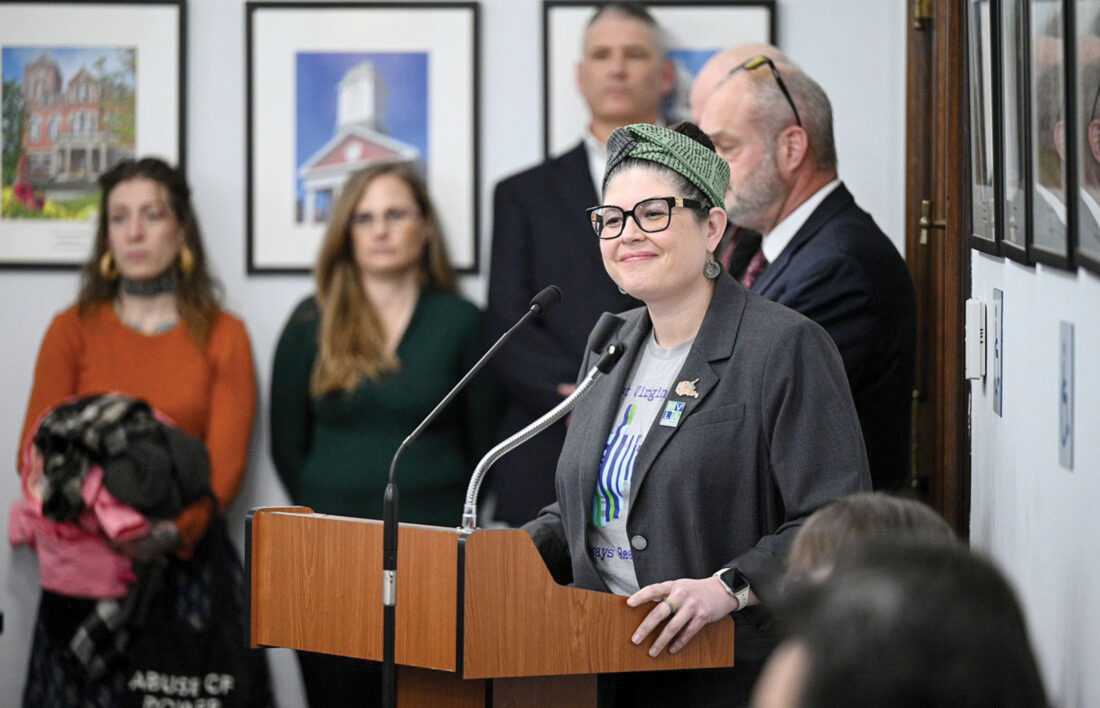
CHARLESTON, W.Va. — The West Virginia House of Delegates this past week passed House Bill 4654, on an 85-12 vote, a measure that would remove criminal liability protections and legal shielding for schools, public libraries, and museums relating to distribution and display of books or other materials to a minor deemed obscene.
The bill has been sent to the state Senate for its consideration.
The Parkersburg News and Sentinel’s West Virginia state government and capital reporter Steven Allen Adams reported:
Del. Brandon Steele, R-Raleigh, is the lead sponsor of the bill. Steele said his intention was to lift criminal liability protections in libraries so that the criminal laws about displaying obscene material to minors without their parent’s supervision would apply universally;
“What this bill does is remove an exemption from an existing crime,” Steele said. “What no one seems to want to talk about in here is that this is a crime everywhere except the public library or a school or a museum.” Steele believes he is protecting children from being groomed by child sex predators, though no evidence was presented that libraries are known grounds for pedophiles.
“What I hope the chilling effect of this legislation is is to remove the sanctuary for pedophilia that exists in our code,” Steele said. “I’m taking a vote to protect children from being groomed and targeted by pedophiles … and putting everyone in the same playing field. If it is a crime in the parking lot, it’s a crime in the building. Period.”
According to State Code 61-8A-2, any adult who knowingly and intentionally displays obscene matter to a minor could be charged with a felony, fined up to $25,000 and face up to five years in prison if convicted.
Over the past two years far-right extremist groups like Florida-based Moms for Liberty, have charged that LGBTQ+ books should be removed from schools and also placed in ‘Adults only’ material sections of public libraries, many arguing that LGBTQ+ subject material is inappropriate exposing minors to being “groomed” or are outright obscene.
These far right activists have successfully banned books in multiple jurisdictions and have also gotten legislation passed that effectively removes LGBTQ+ books from schools and public libraries.
Delegate Steele’s bill moves beyond book bans by actually criminalizing the presence of any book deemed “obscene.”
Megan Tarbett, chair of the West Virginia Library Association, testified before the House Judiciary Committee on Tuesday that all library systems in the state are different, but most have processes for the public to challenge books they find concerning.
Review processes sometimes involve library staff or the library boards, which can decide to either keep the book, move it to a more appropriate section, or remove the book, the Parkersburg News and Sentinel reported.
Tarbett also told lawmakers that many libraries have unattended child policies that limit where children can go on their own without supervision. And some libraries have age limits for when minors can apply for their own library cards.
Tarbett testified that there were approximately 5.2 million books borrowed from 171 libraries in West Virginia in 2023, with 1.2 million books in children’s literature. Most of those children’s books were checked out using a parent’s library card. However, Tarbett could only recall approximately 50 times when specific books were challenged.
Books are under profound attack in the United States, says PEN America, a left-of-center organization dedicated to promoting its conception of free speech and journalism. The organization notes in a statement:
“They are disappearing from library shelves, being challenged in droves, being decreed off limits by school boards, legislators, and prison authorities. And everywhere, it is the books that have long fought for a place on the shelf that are being targeted. Books by authors of color, by LGBTQ+ authors, by women. Books about racism, sexuality, gender, history.”
PEN America tracks all book bans in libraries and classrooms across the U.S. in its Index of School Book Bans, updated for the 2022-2023 school year.
West Virginia
West Virginia bill would mandate “curing” trans people under 21
West Virginia lawmakers released a bill that bans gender affirming care up to the age of 21 and mandates therapists “cure” trans people
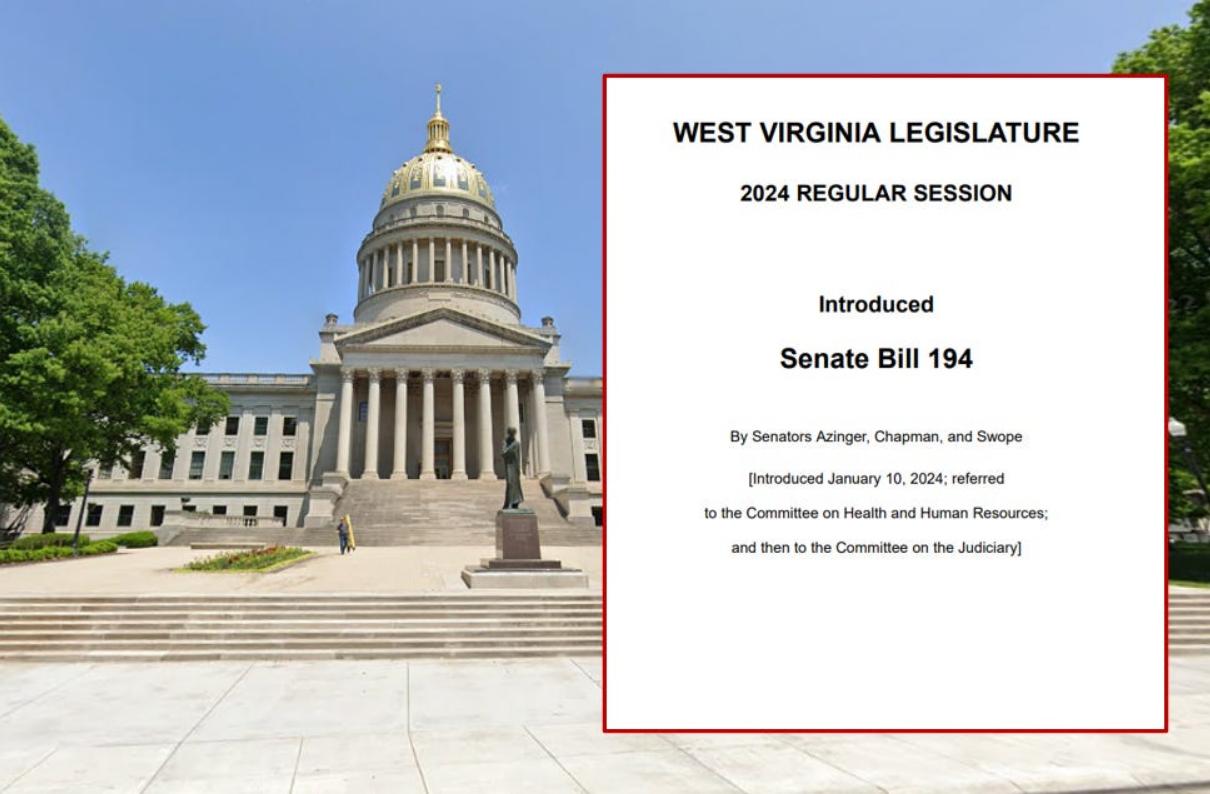
By Erin Reed | CHARLESTON, W.Va. – A new bill in West Virginia, Senate Bill 194, would enact a total ban on gender-affirming care for trans individuals up to 21 years old and mandates that all therapists and social workers in the state attempt to “cure” being transgender.
The bill, filed by Senators Mike Azinger, Laura Chapman, and Chandler Swope, would impose the most draconian restrictions on gender-affirming care in the United States. It would also force all social workers and therapists in the state to become conversion therapists.
This would build on West Virginia’s under-18 ban on gender affirming care passed in 2023, which included exceptions that allowed some transgender youth to continue receiving care. The bill, identified as one of the most dangerous this cycle in West Virginia by leading state organizers, is one of 9 anti-trans bills released yesterday in West Virginia.
The bill is broken into sections to target different aspects of transgender care. One section defines being transgender as “sexual deviation” and places it alongside “pedophilia, exhibitionism, masochism, sadomasochism, fetishism,” and more.
Another defines minors for the purposes of this bill as being anyone under 21 years of age, expanding the definition to include transgender adults. The bill then would ban gender affirming care for anyone under this age while also banning the usage of state funds for gender affirming care.
The most jarring provision in the bill, not found in any other gender affirming care ban bill to date, is the one that applies to all social workers, counselors, psychologists, psychiatrists, and therapists. The bill mandates that all mental health care professionals would be prohibited from “exacerbating gender dysphoria” in those under 21 years of age by “continuing such condition, delusion, or disorder with no intent of cure or cure-pursuing recovery.”
Therapists would be mandated to “cure” gender dysphoria, as affirming their transgender patients would be considered “continuing such condition, delusion, or disorder.”
See the provision here:
This provision would mandate that therapists and social workers in the state become conversion therapists, a practice currently banned in 27 states according to the Movement Advancement Project.
There is no evidence that there is any “cure” for being transgender. Meanwhile, there is ample evidence that conversion therapy harms transgender people. Transgender people forced into conversion therapy are more than twice as likely to attempt suicide, and the risk does not differ between “secular” and “religious” conversion therapy attempts.
Prominent West Virginia organizer Ash Orr, who goes by he/they pronouns, spoke with Erin In The Morning and identified the bill as one of the most dangerous in the 2023-2024 legislative cycle, stating “Senate Bills 194 and 195 are the two bills I’m most concerned about.”
Asked what the bill would mean for transgender West Virginians, he stated, “Trans people know they are – there is nothing to ‘cure.’ The truth is, trans people of all ages are living happy, complete, and joyful lives – this contradicts the false narrative created around our community by extremist politicians. This piece of legislation attacks our most basic values of privacy and control over our own bodies, and is based on misleading or even outright false ideas.”
The bill is one of several proposed in West Virginia this year. Another bill, Senate Bill 195, would target transgender people as being “obscene” and would bar “transgender exposure, performances, or display” to any minor.
This could have the effect of barring transgender people from being able to exist in public, as it would be difficult to avoid being seen as a transgender person by a minor. Speaking to this bill, Orr stated, “This is a blatant attempt to criminalize and erase the trans community of West Virginia.”
West Virginia will begin referring bills to relevant committees shortly, and given the extreme interest by Republican presidential candidates this year, these bills will bear close watching. Likewise, in West Virginia, multiple Republican candidates will be running for governor as Governor Jim Justice pivots for his Senate run.
Republican primaries have been a cause for concern for Republicans who otherwise would not support anti-trans legislation. With the introduction of West Virginia’s anti-trans bills, the nationwide count for anti-trans legislation now stands at nearly 200 bills in the first 11 days of 2024.
When asked about the increase in anti-trans legislation in West Virginia, Ash responds with hope, “The rise in legislative attacks aimed at our community is concerning, but it shows the desperation of lawmakers and extremists who are against transgender rights.”
****************************************************************************

Erin Reed is a transgender woman (she/her pronouns) and researcher who tracks anti-LGBTQ+ legislation around the world and helps people become better advocates for their queer family, friends, colleagues, and community. Reed also is a social media consultant and public speaker.
Follow her on Twitter (Link)
Website here: https://www.erininthemorning.com/
******************************************************************************************
The preceding article was first published at Erin In The Morning and is republished with permission.
West Virginia
Students in West Virginia walk-out over classroom Pride flag ban
Speaker after speaker reinforced the fact that the Pride flag was symbolic of the LGBTQ+ community and not a pollical statement or gesture
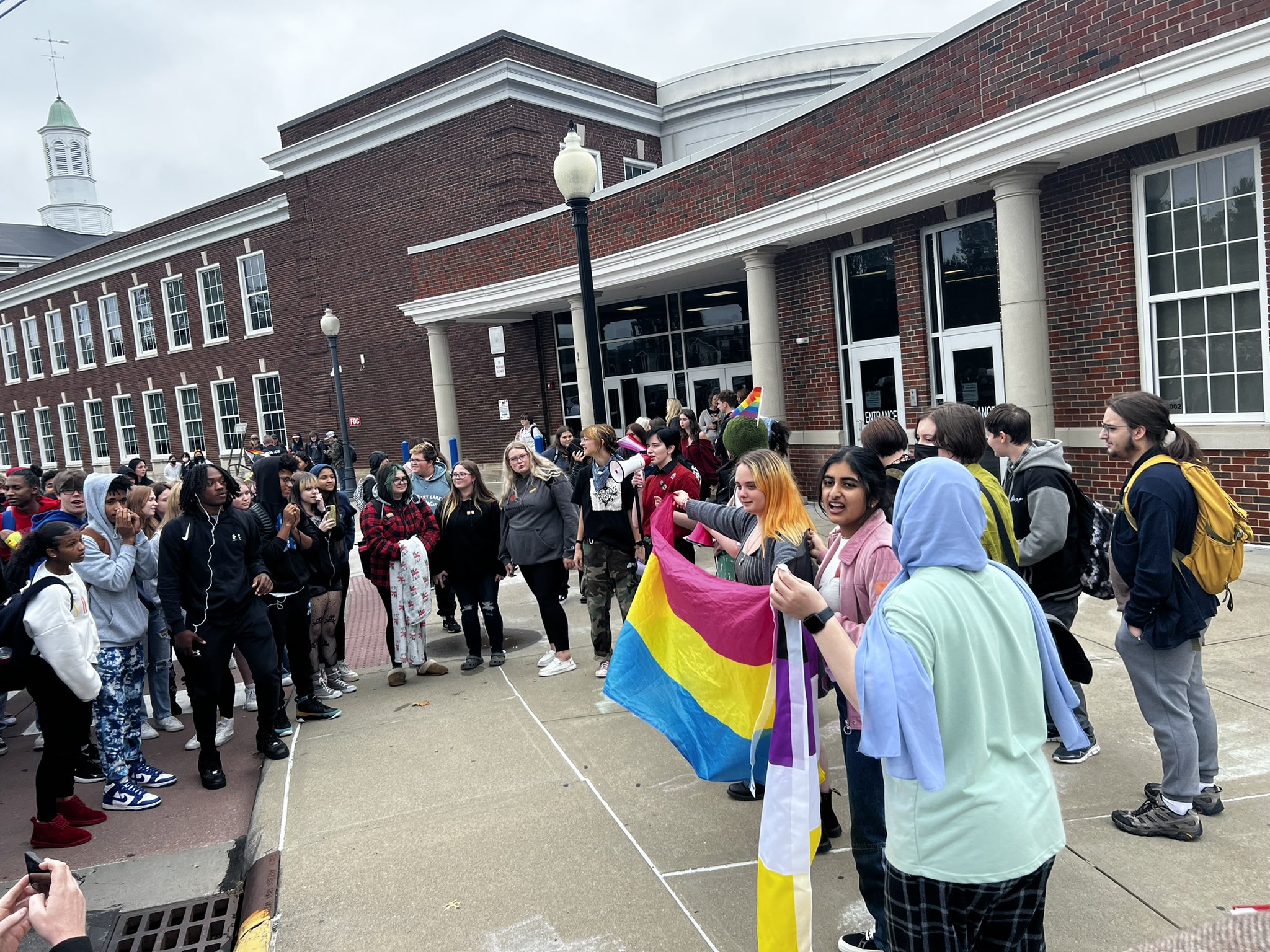
MORGANTOWN, WVa. – The Monongalia County Board of Education decision to uphold its August decision to ban all LGBTQ+ Pride flags from district classrooms on Tuesday prompted walkouts by students with some faculty members in protest Wednesday.
The board decision also drew sharp criticism from more than half of Morgantown’s City Council members. Deputy Mayor Danielle Trumble told the Morgantown News that she’s very disappointed with the decision to “make accepting children, making children feel welcome and accepted, as our city says we want to be, that should not be a political decision.”
Especially, Trumble continued, when LGTBQ+ youth are at higher risk of depression and suicidal tendencies.
Mayor Jenny Selin weighed in saying that the Pride flags classrooms signal an area that is a safe space for those who identify with what the flag symbolizes.
“As such it can make a student at a highly volatile time in their life know where they might find an ear, or a friend or someone to talk to in that particular classroom,” Selin said.
In that light, it doesn’t seem to be political and Selin said she thinks it’s important to be able to find those safe spaces.
Third Ward representative Ixya Vega addressed the widely shared idea by conservatives and the far-right that display of the LGBTQ+ Pride flag was political.
“Supporting a child is not a political movement,” Vega said. “It is simply supporting a child, which is the job of the school systems. I’m so sorry to the students who have been made to feel less than and this does not align with our city’s values.”
West Virginia University has its main campus in Morgantown and the student-run campus newspaper, The Daily Athenaeum, reported that in yesterday’s board meeting, Dozens of people, including parents, teachers and students, spoke out with a majority expressed concern with the ban on Pride flags.
Morgantown Pride president Ash Orr in an interview with The Daily Athenaeum noted; “We are just here to kind of amplify them right now, as well as speak on their behalf because some of them do not feel safe coming forward because they fear retaliation,” Orr said.
“We are here to not only help them, but we also, as a board, want to make sure that future students, faculty and staff that go through these halls are able to feel safe and represented.”
In the board meeting, Orr referenced an email sent by a member of Mass Resistance, a national anti-LGBTQ+ hate group, to them and members of the Board of Education. They added that the email was shared with students, teachers and parents in Monongalia County.
The email outlined religious beliefs and online references against the LGBTQ community in general, encouraging the BOE’s decision to ban the flag, according to Orr.
Orr said the email is an example of the platform that is given to “hate speech” and “hate crimes” by making it acceptable to say that the pride flag, a symbol for the community, is political.
“It’s the kids, the faculty and the staff who are inundated with this harassment and hatred every day in an environment where they’re supposed to be feeling safe,” they said. “That’s what scares me.”
Thank y’all for showing up and speaking out at tonight’s BOE meeting on behalf Queer students, faculty, staff, and community members of Morgantown. To the students who have entrusted myself and other members of Pride, y’all are absolute rockstars and I am so proud of you! pic.twitter.com/gyHkMrjOup
— ash.in.wv (they/he)🏳️⚧️ (@ash_in_wv) September 28, 2022
Speaker after speaker reinforced the fact that the Pride flag was symbolic of the LGBTQ+ community and not a pollical statement or gesture. However at the end of the meeting according to The Daily Athenaeum, schools superintendent Eddie Campbell reinforced the decision, supporting himself with statements from legal advisors. He said removing the pride flags from classrooms falls in line with the BOE policy that states “non-school related activities, including political activities, do contribute to a positive learning climate and may be disruptive, divisive and distracting.”
On Wednesday LGBTQ+ students, allies, and some faculty members walked out in protest:
Easily 250-300 students and faculty walking out in opposition of the Pride flag ban in Mon County, WV schools. These folks are absolutely incredible! pic.twitter.com/xq1QCoZWKk
— ash.in.wv (they/he)🏳️⚧️ (@ash_in_wv) September 28, 2022
West Virginia
W.Va. gay man sues Spirit Halloween after manager harassment, f-slur
Spirit Halloween and Penn accused of violating the West Virginia Human Rights Act, which protects people from sex-based discrimination
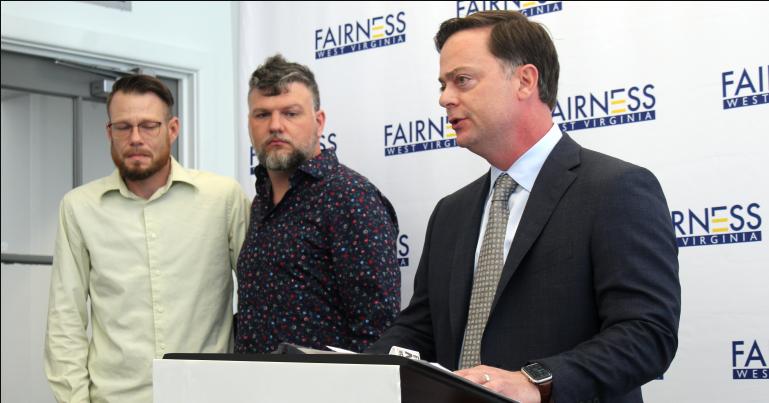
CHARLESTON, Wv. – A gay man in West Virginia’s capital of Charleston was denied service, harassed and called a homophobic slur by the manager of a local Spirit Halloween in October of last year, a recently filed lawsuit alleges.
LGBTQ+ rights group Fairness West Virginia filed the complaint in a Kanawha County court in late March, suing both the seasonal Halloween chain and Thelmon Penn, a manager at the store, for discrimination. The lawsuit alleges Penn called Trevor Anderson, the plaintiff, a homophobic slur and chased him out of the store, threatening to fight him.
Anderson was visiting the Spirit Halloween on MacCorkle Ave. at approximately 8 p.m. late last October to return a costume he purchased, according to court documents. Penn was standing nearby when Anderson placed the items on the counter and told the cashier he would “handle this.”
Penn asked Anderson why he wanted to make the return, the complaint said. Anderson told him the costume didn’t fit.
“Maybe you shouldn’t try to wear women’s clothes,” Penn said, according to the lawsuit.
Anderson asked for a manager, to which Penn responded that he was the manager, said court documents. Anderson told him his comments were out of line and asked for his contact information.
“I’ll give you my name, but I’m not giving my number to a f**got,” Penn allegedly said.
“Get out of my store,” he added, according to court documents, threatening to “beat his ass” if he returned.
As Anderson left the store, Penn followed him out – all the way to his car, said the complaint. Penn removed his shirt and said he would “beat your f**got ass,” attempting to physically assault Anderson.
“Since that day, I’ve been looking over my shoulder,” Anderson said in a Fairness West Virginia press release. “There have been times where I didn’t even want to run errands or go out in public — to work, even — because the anxiety of leaving the safety of my house is too much to handle.”
https://www.facebook.com/watch/?ref=external&v=651387872585627
Anderson is accusing both Spirit Halloween and Penn of violating the West Virginia Human Rights Act, which protects people from sex-based discrimination, and Charleston’s local fairness law, which explicitly bans discrimination based on someone’s sexual orientation or gender identity. Fairness West Virginia is arguing that the state’s Human Rights Act applies to the case because the U.S. Supreme Court’s ruling in Bostock v. Clayton County also protects LGBTQ+ people.
“Depending on how this case goes, we may ultimately see a ruling that explicitly adopts the Bostock ruling for [West Virginia’s] law,” Jake Jarvis, the communications director for the group, told the Blade. “That would be a huge win for LGBTQ people in our state.”
Spirit Halloween did not immediately respond to the Blade’s request for comment.
“Incidents like this don’t just affect the victim. They also instill fear in members of the entire LGBTQ community,” said Andrew Schneider, executive director of Fairness West Virginia. “The truth is, discrimination is a real problem in our state, and that’s why it’s so important that we have laws on the books to protect people like Trevor. We need our leaders at the Legislature and in Congress to take this seriously. No one should have to experience what Trevor did. No one should live in fear.”
Ben Salango, who is the attorney handling the case, said Spirit Halloween’s corporate headquarters “is well aware of this incident.”
“However, to date, there has been no apology for the outrageous and discriminatory actions of its manager,” he said. “Spirit Halloween left Mr. Anderson with no alternative but to file a lawsuit.”
West Virginia
West Virginia Trans man wins broad nondiscrimination protections
LGBTQ people face a “patchwork of protections” against discrimination- The state is one of 29 with no law to ban discrimination in employment

CHARLESTON, Wv. – A West Virginia Trans man won a three-year-long legal battle late last year, establishing legal precedent that protects LGBTQ+ people in the state from discrimination.
Robb Livingood, a Trans man, sued West Virginia’s Fifth Judicial Circuit Public Defender’s Office, alleging it denied the public defender a position he was qualified for because he was transitioning – publicly presenting as a masculine woman and privately experimenting with different pronouns. The job ended up going to someone with significantly less experience, the Mountain State Spotlight reported.
“I had spent a life building my resume and my qualifications, and I was bringing a lot to the table,” Livingood told the outlet, adding: “To be turned away from a job on a basis other than my qualifications, that just struck me as a gross injustice.”
In court filings, the Fifth Circuit Public Defender’s Office argued that Livingood was underqualified for the position and stated Trans people “are not a protected class under West Virginia’s Human Rights Act.” It also denied that the office discriminates on any basis in its hiring decisions, according to the Spotlight.
However, a December 2021 ruling from a judge on West Virginia’s Human Rights Commission disagreed with both claims, saying that the office did discriminate against Livingood.
The interpretation of the West Virginia civil rights laws gives LGBTQ+ people in the state protections against discrimination.
“It surprised me, in a good way,” Livingood told the Spotlight.
The public defender’s office appealed the decision but did so after the deadline, the outlet reported. The commission has yet to decide whether they’ll consider the late appeal.
The ruling comes as West Virginia lawmakers have tried to pass a bipartisan proposal, called the Fairness Act, to update human rights law to include explicit protections for LGBTQ+ people in the state. Though the legislation has been endorsed across the state, including more than 100 diverse faith leaders, it has not made it out of the state legislature.
In 2020, the U.S. Supreme Court ruled that existing federal law prohibiting discrimination in employment based on an employee’s sex also protects LGBTQ employees.
LGBTQ people face a “patchwork of protections” against discrimination, according to Fairness West Virginia. The state is one of 29 states with no state law to ban discrimination in employment. According to a Norman Analytics and Research poll, 81% of West Virginians believe non-discrimination laws in the state should be strengthened.
West Virginia
West Virginia’s capital bans conversion therapy for LGBTQ kids
Conversion therapy is widely opposed by prominent professional medical associations including the American Medical Association

CHARLESTON, W.Va. – The City Council of West Virginia’s capital city became the first municipality in the state to enact an ordinance banning the widely discredited practise of conversion therapy. In a 14-to-9 vote, the council passed the ordinance Monday to protect LGBTQ youth from the practise.
Conversion therapy is widely opposed by prominent professional medical associations including the American Medical Association, the American Psychological Association, and the American Academy of Pediatrics. The proposed ordinance carries a fine of up to $1,000 for violations.
“All of Charleston’s children deserve love and respect for who they are, and no one should be in the business of trying to shame or humiliate teenagers out of being LGBTQ,” said Andrew Schneider, executive director of Fairness West Virginia. “Our city’s medical and faith communities came out strongly in support of this bill to ban the dangerous and discredited practice of conversion therapy, and I congratulate members of city council for bravely approving it.”
“The Trevor Project is thrilled to see historic action being taken in West Virginia to protect LGBTQ youth from the dangers of conversion therapy. This discredited practice is not therapy at all — it’s been debunked by every major medical organization and shown to increase suicide risk,” said Troy Stevenson, Senior Advocacy Campaign Manager for The Trevor Project. “We are hopeful that this victory will help catalyze the passage of state-wide protections in the Mountain State, ensuring that no young person in West Virginia is subjected to this fraud at the hands of mental health providers.”
A total of 20 states, as well as the District of Columbia, the Commonwealth of Puerto Rico, and 94 municipalities (mostly located in Florida, Ohio, Pennsylvania, Wisconsin, Michigan, and Minnesota), have banned the practice of conversion therapy on minor clients. Minnesota and Michigan’s Governors earlier this year signed executive orders that prohibit state funds being expended on the practise.
Research Findings:
- According to The Trevor Project’s 2021 National Survey on LGBTQ Youth Mental Health, 13% of LGBTQ youth reported being subjected to conversion therapy, with 83% reporting it occurred when they were under age 18. LGBTQ youth who were subjected to conversion therapy reported more than twice the rate of attempting suicide in the past year compared to those who were not.
- According to a peer-reviewed study by The Trevor Project published in the American Journal of Public Health, LGBTQ youth who underwent conversion therapy were more than twice as likely to report having attempted suicide and more than 2.5 times as likely to report multiple suicide attempts in the past year.
West Virginia
Conservative West Virginia state GOP lawmaker comes out during Pride
“I’m still a conservative Republican. That’s rare, I know, but you can be gay and Republican. You can be gay and conservative.”
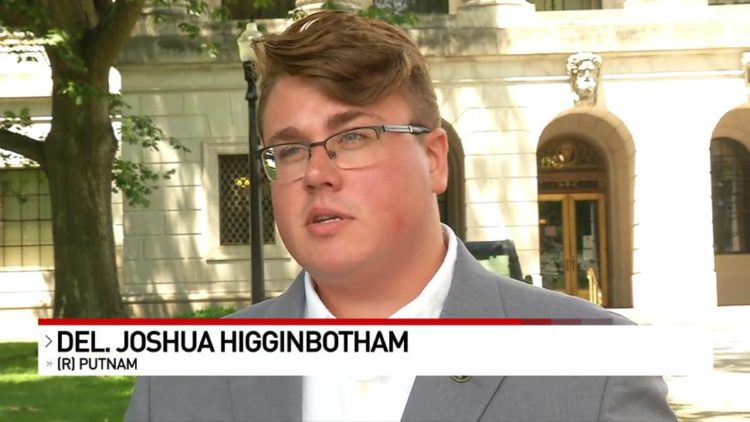
CHARLESTON, WVA. – A conservative Republican lawmaker in the House of Delegates took to Twitter and other social media platforms this past weekend announcing that he is gay. Twenty-four year old Joshua Higginbotham said that he felt he owed it to the voters of West Virginia, after recently deciding to share it with his family and friends.
Higginbotham, who was first elected to the House when he was only 19, represents rural Putnam County located alongside Interstate 64 between the state’s capital city of Charleston to the East and Huntington to the West. His campaign adverts have all trumpeted his avid support of the Second Amendment as well as taking a pro-life position.
However, a check of some of his recent legislation shows a more progressive mindset. He is lead sponsor on House Bill 2998, a measure amending the State’s current codes relating to unlawful discriminatory practices in four categories covered by the West Virginia Human Rights Act and the Fair Housing Act, adding language that prohibits discrimination based upon age and sexual orientation, or gender identity; and defining “sexual orientation” and “gender identity.”
That measure, earlier in the legislative session, led to a series of conflicts which involved the state’s only other openly gay lawmaker, Democratic Delegate Cody Thompson (D43-Marion). Republican House Delegate John Mandt, who resigned after posting an anti-gay slur but then was re-elected drew harsh criticism for an extended online diatribe opposing protections against discrimination based on sexual orientation and gender identity the Associated Press reported earlier this year on February 7, 2021.
In his social media video as well as in an interview with reporter Anthony Conn from the local ABC News affiliate WCHS 8 in Charleston, Higginbotham said, “I am still a Christian. People think that gay people can’t be Christians. I believe God loves me no matter what. I’m still a conservative Republican. That’s rare, I know, but you can be gay and Republican. You can be gay and conservative.”
He added referring to his conservative politics that “nothing changes except now [you] know about my personal life.”
The statewide LGBTQ advocacy group Fairness West Virginia applauded the delegate’s decision to come out. “We think that it’s great that Delegate Higginbotham can lead his authentic life now. This must be a big burden that’s lifted off his shoulders,” Executive Director Andrew Schneider told WCHS ABC 8.
There are some in the state who are critical of Higginbotham. One source who asked to not be identified, told the Blade in a phone call Tuesday that Higginbotham’s support of former President Trump raised some doubts as to his veracity especially in issues surrounding Transgender West Virginians.
-

 Commentary2 days ago
Commentary2 days agoFinding myself in the West Hollywood nightlife scene
-

 Los Angeles2 days ago
Los Angeles2 days agoAIDS Healthcare Foundation will celebrate its legacy of food relief at the New Year’s Rose Parade
-
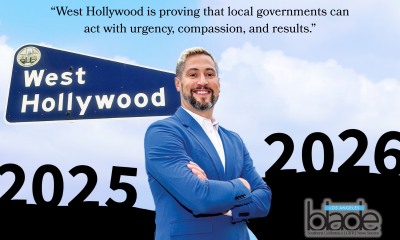
 Commentary1 day ago
Commentary1 day agoLooking back on ’25. Looking forward to ’26.
-
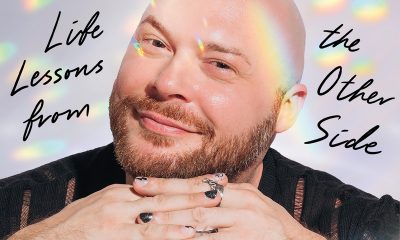
 Books3 days ago
Books3 days agoThis gay author sees dead people
-

 Movies1 day ago
Movies1 day agoThe 25 greatest queer movies of the 21st century so far
-

 Parks & Recreation23 hours ago
Parks & Recreation23 hours agoFor more than two decades, Los Angeles Neighborhood Land Trust has worked to address park inequities
-

 Commentary11 hours ago
Commentary11 hours agoNew Year, New Queer: A polite reminder of the traditions that many of us make and many of us break that are well worth revisiting this particular year
-
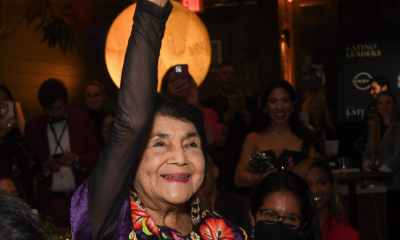
 Features12 hours ago
Features12 hours agoLegendary organizing activist Dolores Huerta, 95, rides in AHF’s ‘Food for Health’ Rose Parade float








